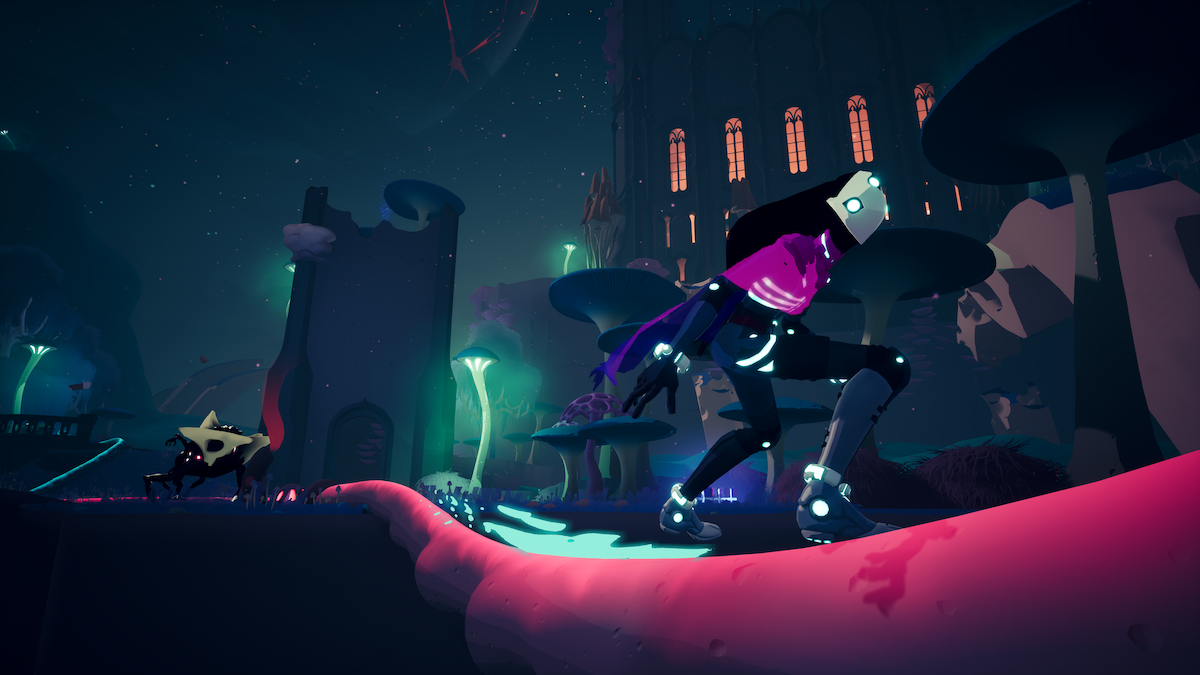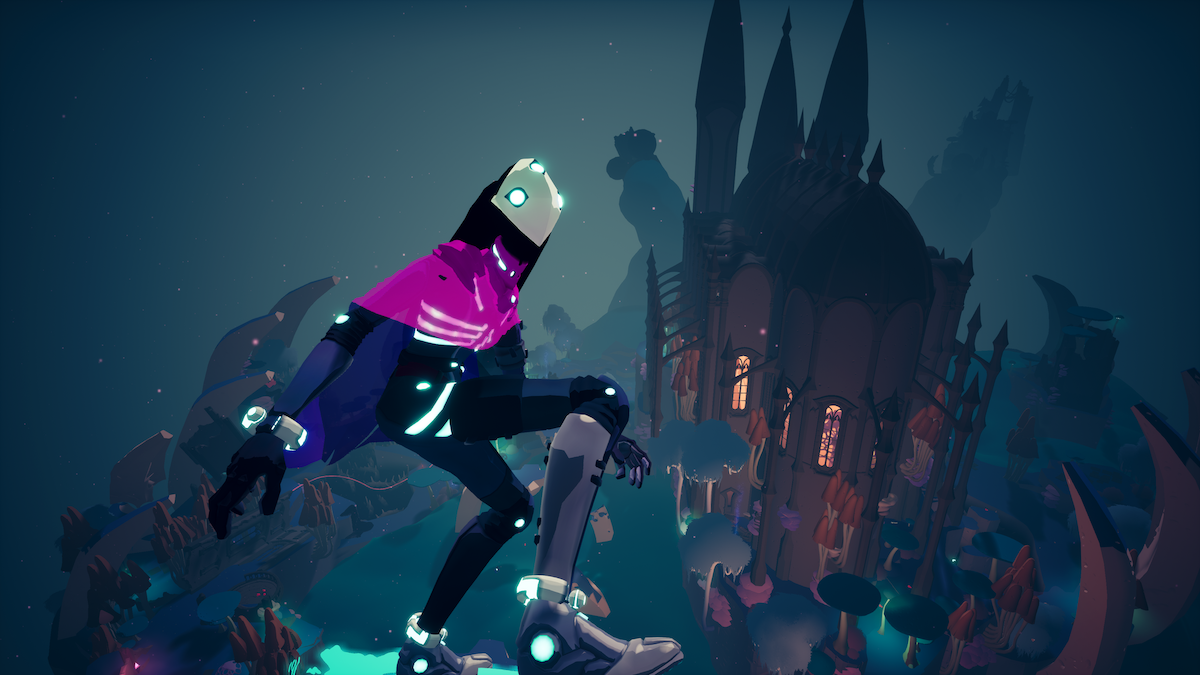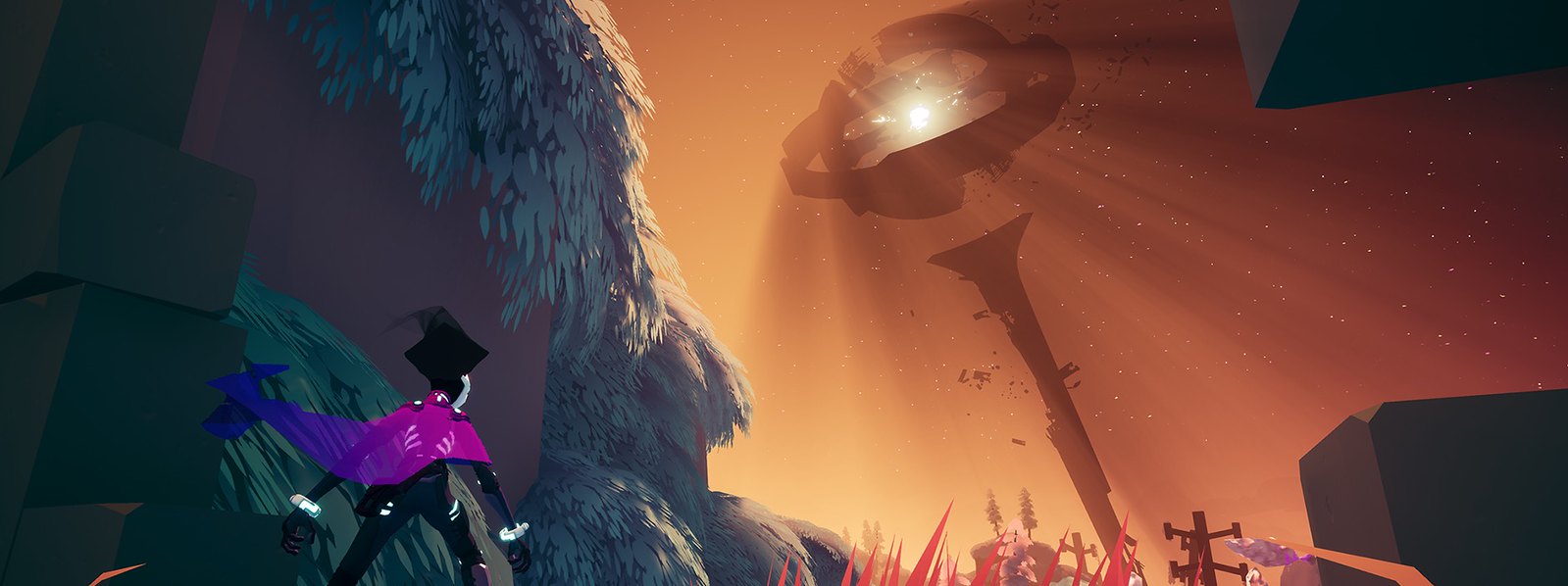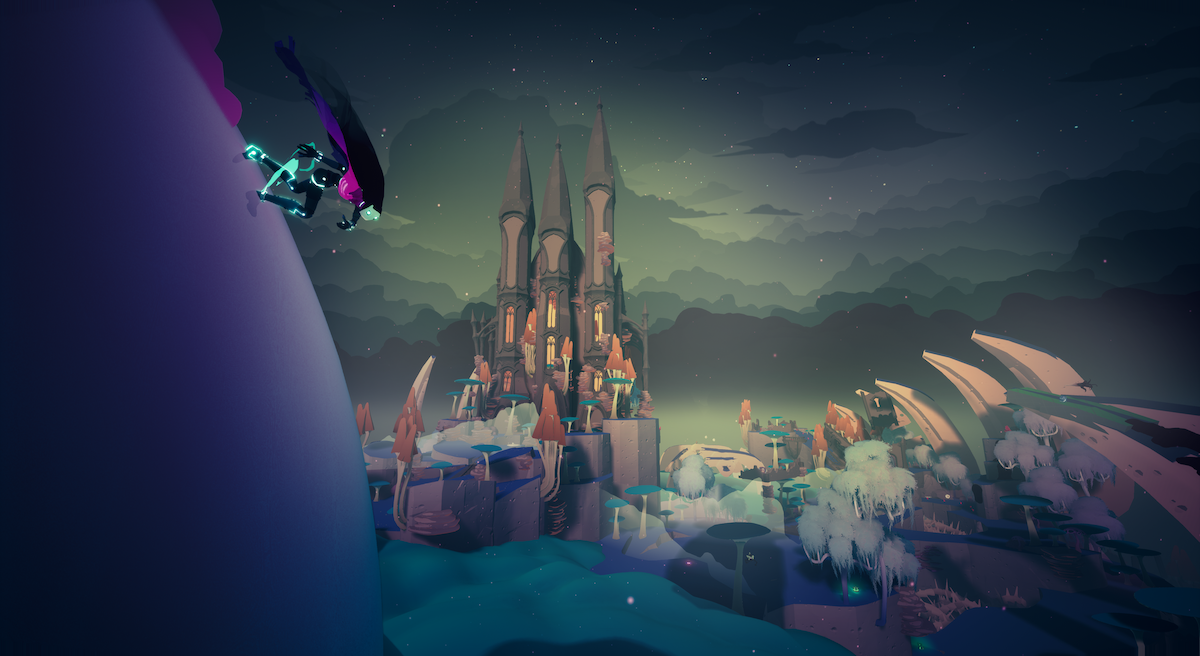After the critical acclaim and commercial success of Hyper Light Drifter, you might have expected its developer Heart Machine to play it safe and make a sequel to the action-RPG. Instead, the studio took a big risk by leaping to 3D with Solar Ash, and it’s the most seamless transition in recent memory. Solar Ash is a stylish action-adventure platformer set in the same universe as Hyper Light Drifter but several galaxies apart. The game’s protagonist Rei travels through the Ultravoid, a ravenous rift in space swallowing worlds visualized through bright neon colors. Between its beautiful setting and thrilling platforming challenges, Solar Ash is an absolute triumph.
Review code provided by Annapurna Interactive.
Based on trailers, gamers may have thought Solar Ash was an action-adventure, but in actuality the title is a finely tuned 3D platformer. Its focus is narrow, but it excels at what it aims for. The gameplay is all about traversal, chaining together jumps and dashes and rail grinds to cross the bright, colorful world. The controls take a few minutes to get a handle on, but the feeling once you start nailing the platforming challenges and get into a flow is positively electrifying.
Like many platformers, Solar Ash only adds a handful of new mechanics over the course of the game. Instead of adding more and more to Rei’s repertoire, the game asks players to master the character’s limited but incredibly adaptive move-set to achieve increasingly impressive feats.
The challenges the game throws at you are tough, but they’re fair. You can only blame yourself if you fail, which makes your eventual success all the more satisfying. The gameplay doesn’t vary up dramatically, but remains consistently satisfying as you gain more and more of a mastery over the precise controls, which you’ll need as the game grows ever more challenging.
Like Hyper Light Drifter, Solar Ash excels at atmosphere. The neon-colored world feels inviting but deadly, equally beautiful and hostile. The game wisely lets players interact with the story as much or little as they wish. If you want to learn more about the desolate world Rei journeys through, you can pore over Void logs and find NPC’s with answers to your questions. If you prefer to focus on gameplay, you’re just as free to skip over the text and soak in the game’s rich environmental storytelling as you glide across the landscapes. No matter how much or how little you dig into the details, you know enough to appreciate the main narrative, especially its breathtaking finale.
Comparisons between Solar Ash and The Pathless are unavoidable. Both games are published by Annapurna Interactive, center on unique traversal mechanics, and take place in visually distinct open worlds. Personally, I find the move-set of Solar Ash more satisfying and the diversity in Solar Ash’s environments preferable The Pathless’ stunning but uniform design, but your mileage may vary. One area in which The Pathless has a distinct edge, however, is in its music, thanks to a beautiful orchestral score from Austin Wintory. Solar Ash’s soundtrack, composed mostly by Troupe Gammage IV with contributions by Joel Corelitz, Sky Lou, and Rich Vreeland, contributes nicely to the game’s mood, but doesn’t leave as lasting an impression.
The game’s faults are relatively minor. The biggest detraction is how difficulty Rei’s alternate suits are to obtain. Players can only unlock a suit by finding all the caches in a given location, and the experience of searching for them can grow irritating with no map to help you locate them. The suits are players’ only opportunity to customize Rei’s abilities, so their inaccessibility is disappointing. Another source of frustration is that if a player misses a difficult jump, they may have to spend several minutes climbing back to where they were to try again. The game should offer players a way to instantly return to their last checkpoint, not scare them into playing it safe.
Solar Ash would have felt revolutionary had it released before The Pathless, which was praised for pioneering a new kind of open world that focuses on the journey as much as (or more than) the destination. However, even without that notch in its belt, Solar Ash’s exciting traversal mechanics, combined with the beautiful visuals and eerie atmosphere, make it a game worth remembering. The final minutes of the game left me wanting more, but even if Heart Machine foregoes a sequel and again tries something new, I’m eager to see what direction the studio heads in next.








